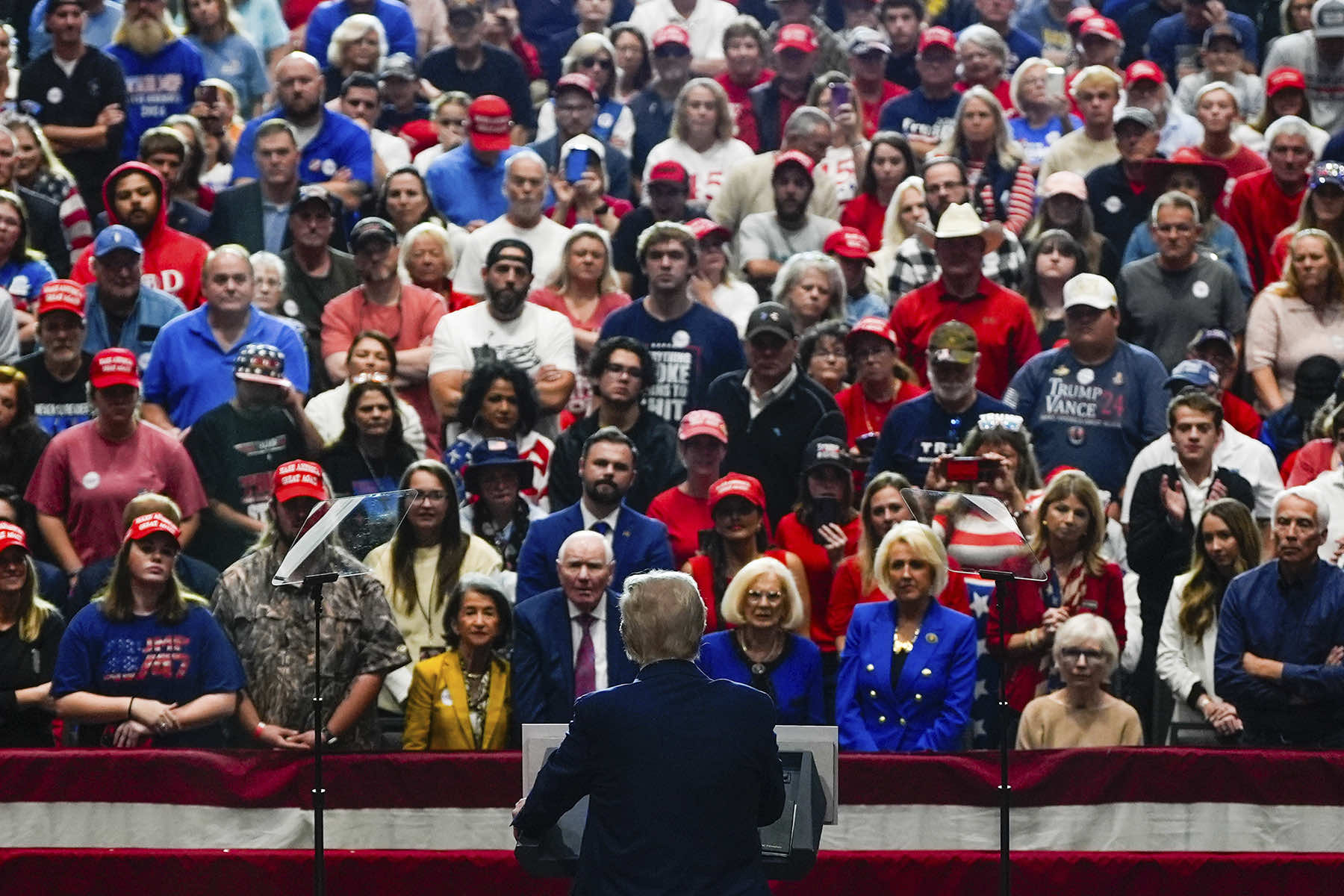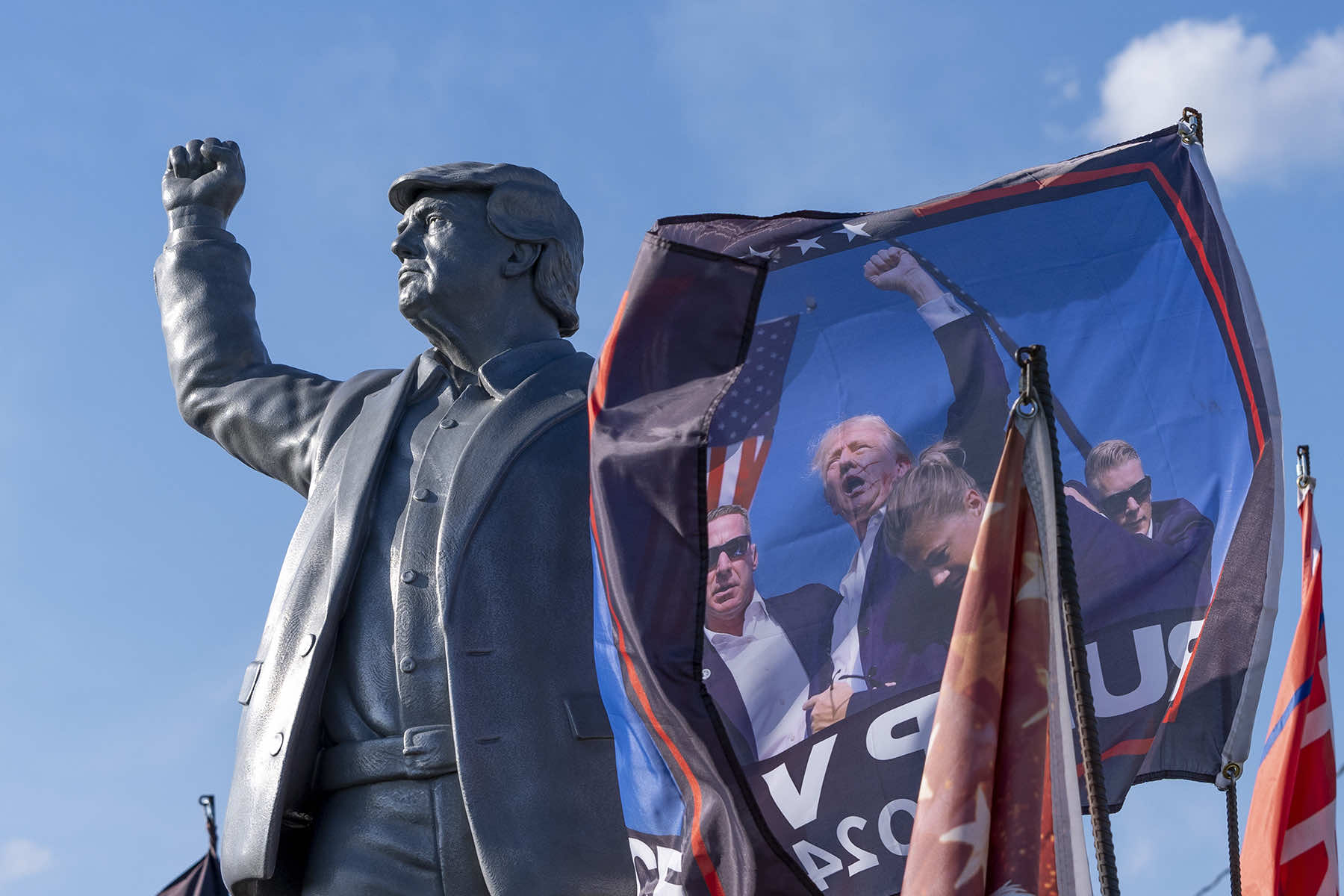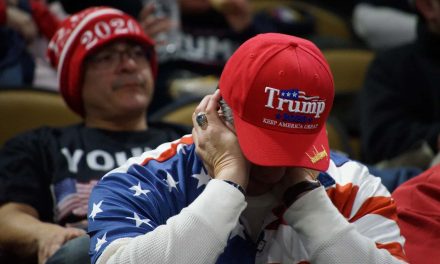
The 2024 presidential election has left the political world reeling, not because it was shocking, but because its result seemed inevitable.
Vice President Kamala Harris, despite being one of the most qualified candidates to ever run for the office of U.S. President, was unable to overcome the political juggernaut of the convicted felon and serial sexual abuser, Donald Trump. Pundits have been quick to dissect her loss, blaming everything from her campaign’s messaging to voter apathy, sexism, and even the Democratic Party’s broader strategy.
Yet, amid the whirlwind of speculative analysis, an elephant remains in the room. What these pundits refuse to confront is how Trump’s unique parasocial bond with the American public shaped the election’s outcome.
They fail to grapple with the fact that this connection, rooted in the most primal corners of human psychology, reflects a deep-seated cultural phenomenon: Americans see themselves — their frustrations, anger, and contradictions — in Trump’s unapologetically terrible behavior.
To understand how the dynamic sealed Harris’s fate, we must unpack the parasocial relationship Trump has cultivated and the role political ideals play in reinforcing these one-sided bonds.
WHAT IS A PARASOCIAL RELATIONSHIP?
Parasocial relationships, first defined by sociologists in the 1950s, describe one-sided emotional connections people form with media figures. These connections are inherently asymmetrical. The public feels intimately familiar with a figure, while the figure remains unaware of their existence.
Originally observed in fan relationships with celebrities or TV personalities, parasocial dynamics now dominate politics in the age of social media and 24-hour news cycles.
Trump used toxic rhetoric to master the art of fostering parasocial connections long before entering politics. As the host of the TV show “The Apprentice,” failed millionare projected a false persona of success and dominance. His television presence, brimming with hyperbolic confidence, allowed millions of viewers to feel as though they “knew” him.
By the time he descended the golden escalator in 2015 to announce his first presidential run, Trump was already a fixture in the damaged American psyche, a “friend” to his fans in the same way a sitcom character might be.
A MIRROR TO AMERICAN REPRESSION
Trump’s parasocial relationship with his radical base goes beyond mere admiration. He embodies behaviors and attitudes that many Americans repress but secretly wish they could express. His defiance of norms, unapologetic crudeness, and unfiltered vitriol strike a chord in a society that increasingly prizes civility, inclusion, and accountability.
For many of his supporters, Trump is seen as the antidote to these perceived constraints: an embodiment of unrepentant freedom. Such a relationship is deeply psychological. Trump’s chaotic behavior resonates with the suppressed frustrations of his supporters, who see him as someone unafraid to voice the anger they have been taught to stifle.
His insults, legal scandals, and disregard for decorum do not alienate his followers, such delinquent actions only strengthen the bond. These “flaws” make him relatable, human, and authentic in their eyes, even as they signal moral and ethical violations to his detractors.
Ironically, his extensive failures — business bankruptcies, impeachments, even criminal indictments — become part of his appeal. Trump’s followers view these as proof of a rigged system designed to keep people like them down. He became not just a leader but a martyr figure, a role he and his campaign strategically cultivated.
THE EMOTIONAL VOID IN HARRIS’S CAMPAIGN
In stark contrast, Kamala Harris’s campaign struggled to evoke similar emotional resonance. Harris brought to the race a polished resume, a disciplined demeanor, and a sophisticated understanding of governance. Yet, she lacked the kind of raw, visceral connection that Trump commanded with his dysfunctional audience.
The challenges for Harris were compounded by societal biases. As a Black and South Asian woman, she faced scrutiny and double standards in ways Trump never did. Her achievements were downplayed, while every perceived misstep was magnified.
Part of the failure was based on the Democratic Party’s approach to campaigning. Democrats tend to emphasize a fact-based reality and rationality over emotion, presenting their candidates as problem-solvers rather than emotionally engaging figures. The Harris campaign, like many before it, relied on policy-driven messaging and appeals to logic. But politics in America is no longer about ideas – it is about identity.
HOW POLITICAL IDEALS SHAPE PARASOCIAL RELATIONSHIPS
The differing parasocial dynamics between Trump and Harris reflect broader ideological divides in American politics. Conservatives, particularly those aligned with Trump, gravitate toward leaders who channel identity and emotion. For Trump’s base, politics is not about policy, It is about tribal belonging and cultural affirmation. Trump’s criminal behavior becomes a feature because it reaffirms the values of defiance and individualism.
Progressives, on the other hand, often seek leaders who embody ideals rather than identities. They prioritize competence, equity, and systemic change, but those values do not always translate into emotionally resonant leadership. While progressive voters may admire their candidates, they rarely form the deep, personal bonds that characterize Trump’s base.
Such a divergence, especially revolving around an overly selfish and self-centered American population, underscores why Trump’s parasocial relationship is so powerful. It taps into primal human desires for connection and validation, fueled by hate.
THE MEDIA’S ROLE IN PARASOCIAL POLITICS
The media plays a critical role in shaping parasocial relationships, and Trump has consistently manipulated that dynamic to his advantage. His bombastic style, willingness to generate controversy, and mastery of social media ensured he dominated headlines. The omnipresence reinforced his connection with his base, who view him as someone always “on their side,” fighting against the media they are taught to distrust.
RECKONING WITH THE PARASOCIAL TRUMP EFFECT
Pundits who dismiss Trump’s supporters as irrational or unthinking fail to grasp the emotional depth of the parasocial bond he has cultivated. His enduring appeal reflects the nation’s collective psyche — its fear and aspirations of inequity. Until political analysts and leaders grapple with such a dark reality, they will continue to underestimate his influence and misunderstand the dynamics of modern American politics.
© Photo
Julia Demaree Nikhinson (AP) and Alex Brandon (AP)















